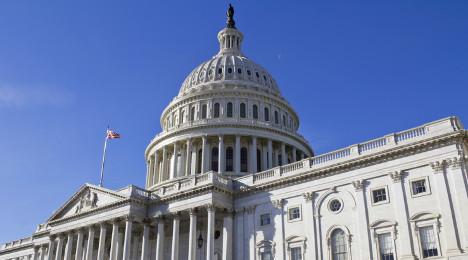Key Case Could Cut CFPB’s Ability to Use Disparate Impact

The ability for federal regulators such as the Consumer Financial Protection Bureau to use disparate impact theory to hand out enforcement actions against finance companies that provide auto financing could be reduced or even eliminated, depending on how the Supreme Court rules before summertime heat reaches Washington, D.C.
During the Vehicle Finance Conference hosted by the American Financial Services Association, attorneys and company executives kept watch on smartphones and tablets on Wednesday because oral arguments took place in front of the Supreme Court that could narrow the scope of discrimination claims made under the Fair Housing Act (FHA) by leveraging disparate impact.
Legal experts from AFSA and other firms contend that if disparate impact no longer can be used in FHA matters, it would be prohibited in cases regarding the Equal Credit Opportunity Act, which is a regulatory tool often associated with the policing of auto financing.
While holding his laptop on stage and pouring over emails from colleagues and other sources, Severson & Werson chairman Mark Kenney attempted to give conference attendees an assessment of what happened during the hour-long oral argument session at the Supreme Court. The specific case pits the Texas Department of Housing and Community Affairs versus the Inclusive Communities Project to determine whether FHA encompasses claims for disparate impact.
The Pacific Law Foundation (PLF) joined many other organizations arguing that FHA only prohibits intentional discrimination. PLF officials contend the threat of being sued under a theory of disparate impact encourages private and public decision makers to act on the basis of race. The theory of disparate impact holds that practices in employment, housing, or other areas may be considered discriminatory and illegal if they have a disproportionate "adverse impact" on persons along the lines of a protected trait. Although the protected traits vary by statute, most federal civil rights laws include race, color, religion, national origin, and gender as protected traits, and some laws include disability status and other traits as well.
PLF went on to mention that Justice Antonin Scalia observed in his concurrence in Ricci versus Destefano, a disparate impact provision not only permits but affirmatively requires race-conscious decision making when a disparate impact violation would otherwise result.
“The Supreme Court has repeatedly held that race-conscious decision making is presumptively unconstitutional. Therefore, any law that requires, or even encourages private or public entities to act on the basis of race is also presumptively unconstitutional,” PLF officials said.
During AFSA’s conference, Kenney focused much of his assessment of the oral arguments on how Scalia approached the proceedings.
“By piecing together bits and pieces of this oral argument, we are reading tea leaves,” Kenney said. “In the first part of the oral argument, Scalia came out very aggressive against the Texas counsel arguing against disparate impact.
“In the second half of the argument, he went after the other side as he often does, asking counsel that if we allow legislation that supposedly prohibits disparate impact, doesn’t that leave businesses and government enterprises to create quotas, which themselves run afoul of the equal protection clause of the Constitution,” Kenney continued.
“The FHA allows prosecution based on disparate impact claims but that in and of itself is a violation under the equal protection clause of the Constitution,” he went on to tell the scores of attendees gathered in San Francisco ahead of a host of other industry events such as the National Automobile Dealers Association Convention.
“They could not get to that second bigger question unless they found that the FHA allows disparate impact. It may be where they’re going. The clever argument is that there is disparate impact analysis out there but you can’t use it because it’s unconstitutional to achieve a bigger result. We don’t know,” Kenney added.
Before discussing Wednesday’s Supreme Court proceeding, Kenney recapped why this case could alter how agencies such as the CFPB operate in the auto finance space. The bureau used disparate impact theory in late 2013 against Ally Financial to level an enforcement action, which included total penalties approaching $100 million.
“As in the FHA context, the CFPB has been saying that even if you have no intention of wanting to discriminate, if you’re engaged in supposedly neutral activities like buying paper that’s as the result of an automobile financing negotiation which includes a dealer mark-up and regulators can conduct statistical analysis to show that racially protected group pay higher markups than non-protected groups, that has a disparate impact,” Kenney said.
“The hope was the Supreme Court would say, in the FHA, there is no disparate impact analysis. It’s not in the statute. And then by extension, the language is very similar in ECOA so you can’t have it there, either,” he continued.
The Supreme Court is expected to make its ruling on this disparate impact case sometime before its current decision-making session ends in June. Typically, the court takes anywhere from two to five months to make a final decision. But AFSA executive vice president Bill Himpler, who joined Kenney for a regulatory update, thinks a decision might come sooner because “the justices have been weighing in on this issue for a long time.”
Himpler also pointed out that CFPB director Richard Cordray has argued on multiple occasions that the FHA and ECOA are “two separate statutes and not related so regardless of what the Supreme Court says.”
But Kenney left AFSA attendees with a clear message, saying, “The CFPB is hanging on this one just as much as this association is.”

 View The Latest Edition
View The Latest Edition

